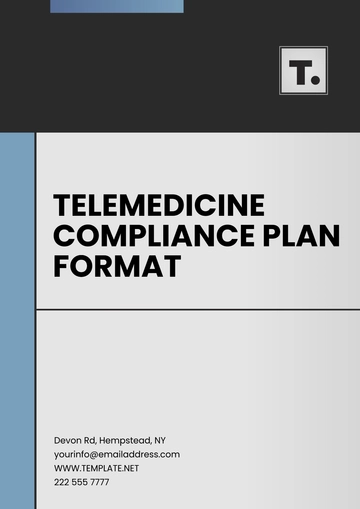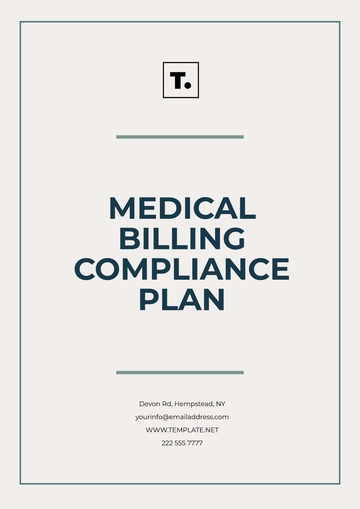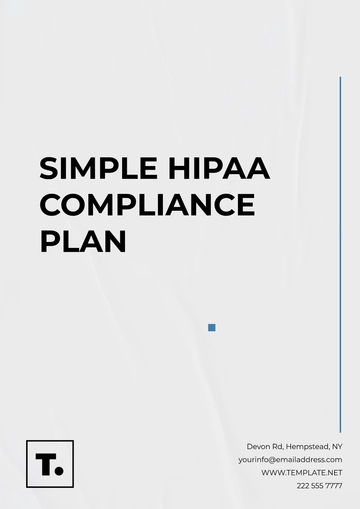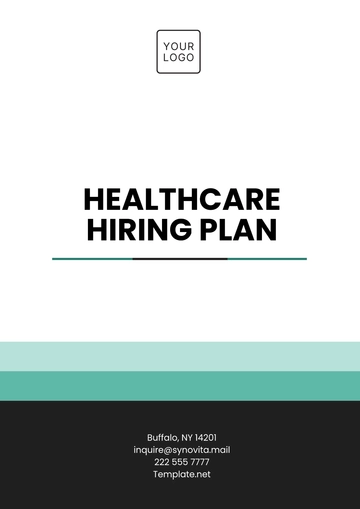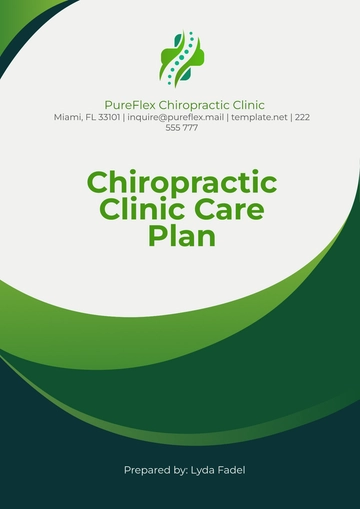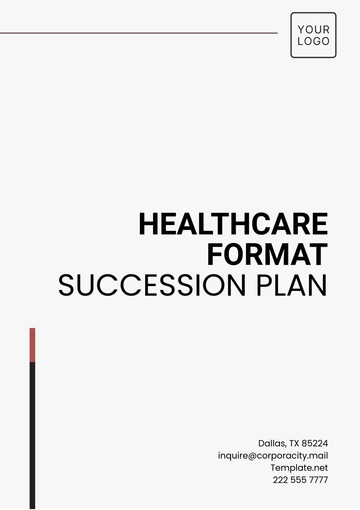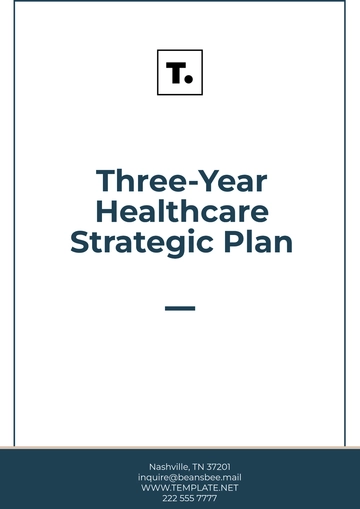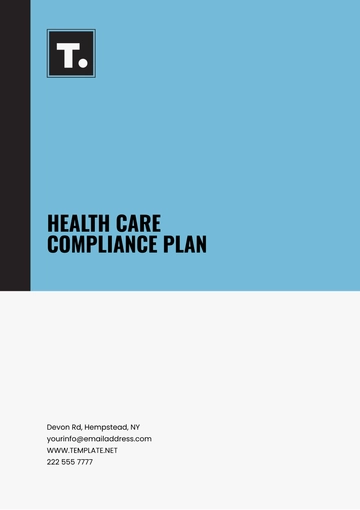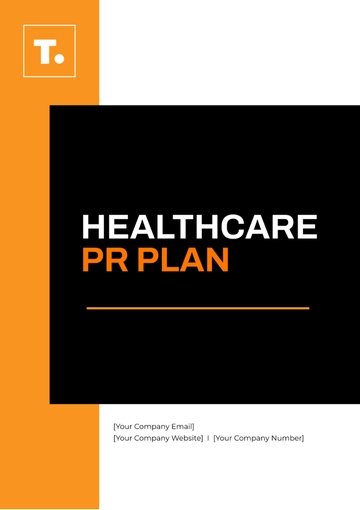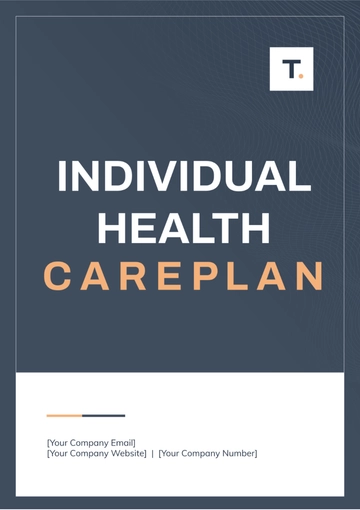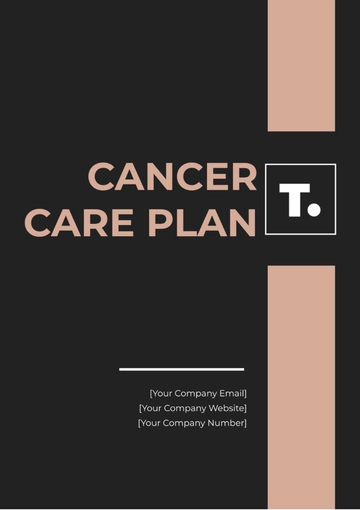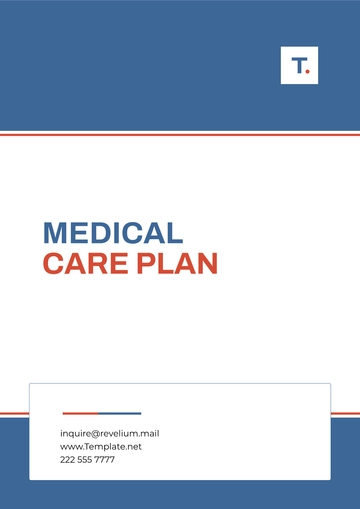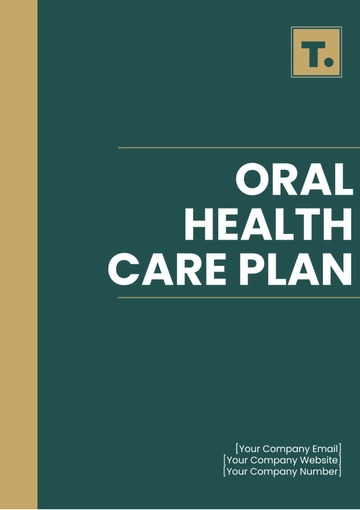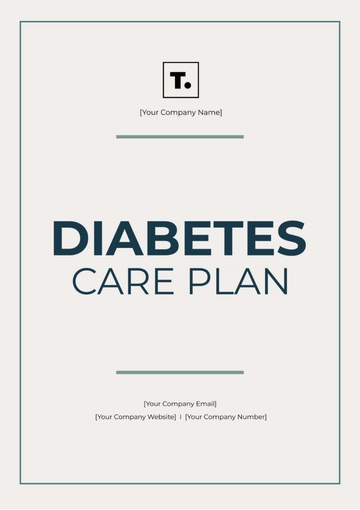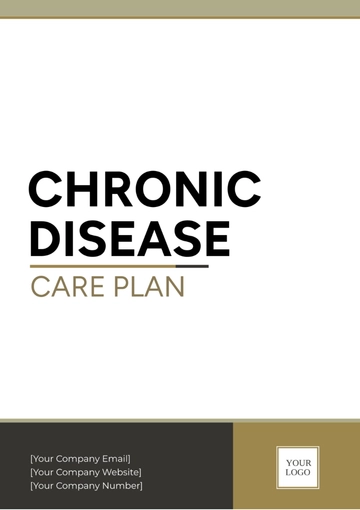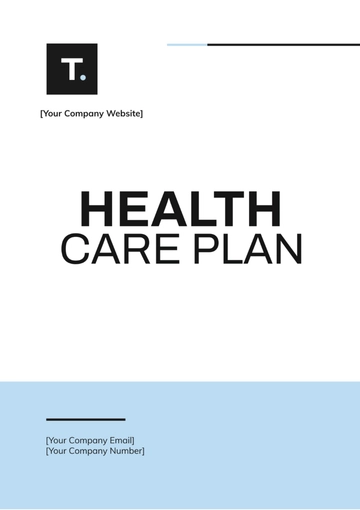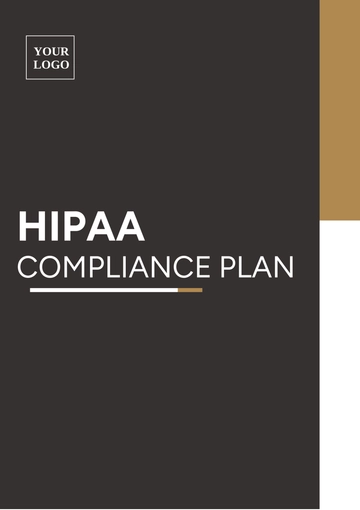Free 3-Year Healthcare Plan Layout
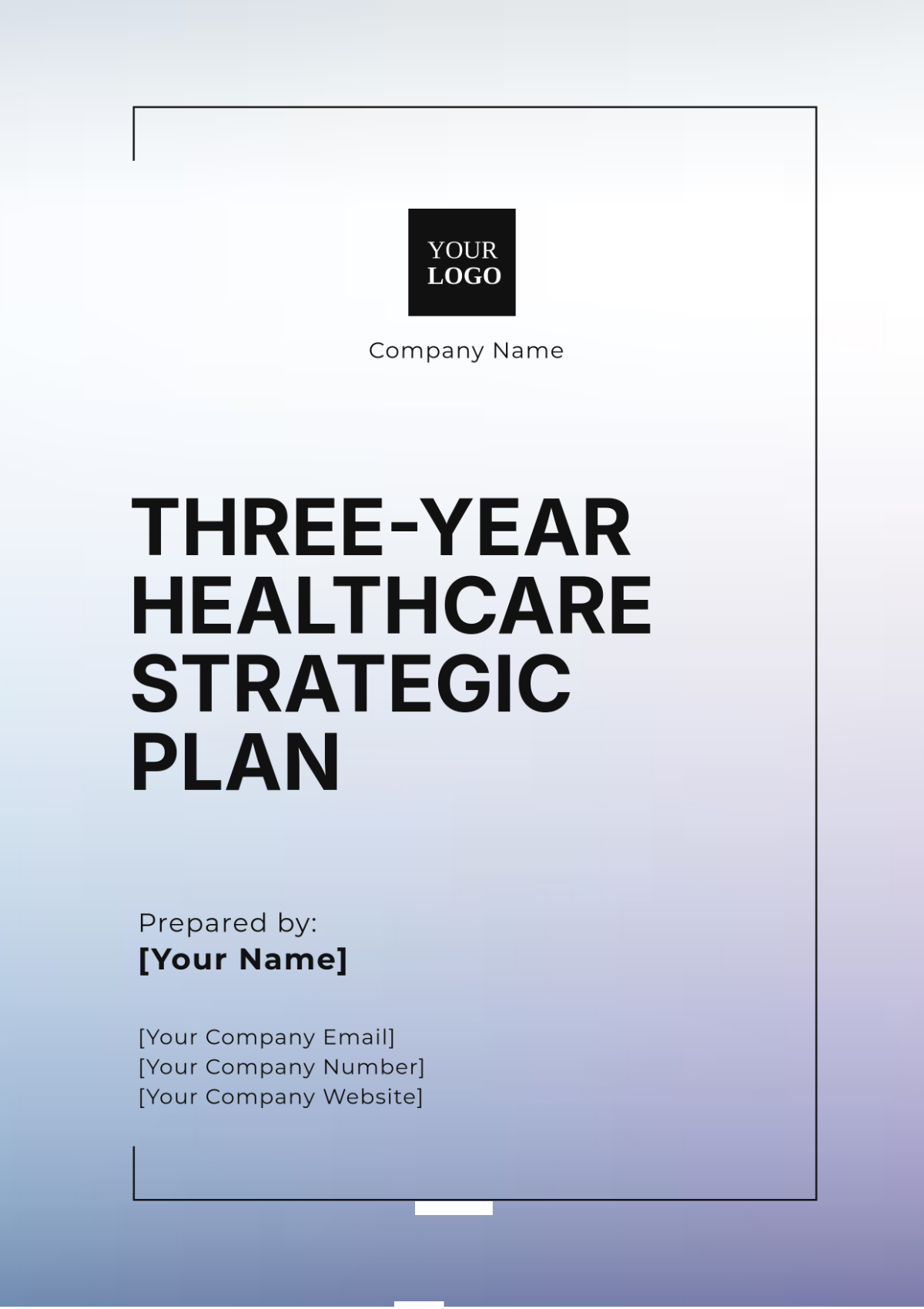
I. Introduction
This strategic plan outlines a comprehensive three-year roadmap aimed at transforming healthcare services to ensure high-quality, patient-centered care, operational excellence, and innovation in medical practices. The plan focuses on enhancing patient satisfaction, streamlining operations, expanding access, and fostering a culture of continuous improvement, setting the foundation for long-term success in healthcare delivery.
II. Strategic Goals
The following key goals will guide our strategic direction over the next three years:
Elevating Patient Satisfaction and Health Outcomes
Optimizing Operational Efficiencies through Technology
Expanding Healthcare Accessibility and Equity
Promoting Continuous Improvement and Innovation
A. Elevating Patient Satisfaction and Health Outcomes
To achieve a patient-centric approach that improves satisfaction and clinical outcomes, we will implement:
Personalized Care Plans: Tailored treatment plans for each patient based on their unique health needs.
Integration of Patient Feedback: Systematic collection and incorporation of patient input to drive service improvements.
Empathy and Communication Training: Equipping healthcare staff with skills in empathy and effective communication to foster a more compassionate care environment.
B. Optimizing Operational Efficiencies through Technology
To enhance operational efficiency, reduce delays, and improve service quality, we will prioritize:
Electronic Health Records (EHR) Adoption: Full integration of EHR systems to ensure seamless data sharing and patient care coordination.
Telemedicine Expansion: Offering virtual consultations to minimize patient travel and reduce waiting times, improving access to care.
Data Analytics for Performance Monitoring: Leveraging data analytics to track key performance indicators (KPIs), optimize processes, and enhance decision-making.
C. Expanding Healthcare Accessibility and Equity
To ensure healthcare is accessible to all, particularly underserved populations, we will focus on:
Community Outreach Programs: Expanding outreach efforts to underserved and remote communities to increase awareness and access to care.
Mobile Health Clinics: Deploying mobile units to provide on-site healthcare services in areas with limited access to traditional healthcare facilities.
Flexible Insurance Coverage: Collaborating with insurance providers to adopt policies that better accommodate diverse patient needs.
D. Promoting Continuous Improvement and Innovation
Innovation and continuous improvement will be core to our organizational culture, supported by:
Regular Protocol Reviews: Updating medical protocols and best practices in line with the latest research and advancements in the field.
Professional Development: Offering ongoing training and development opportunities to staff to ensure they remain at the forefront of medical innovation.
Integration of Safety and Quality Standards: Embedding patient safety and quality assurance measures into daily operations, with a focus on proactive improvements.
III. Implementation Timeline
Year | Key Initiatives | Milestones |
|---|---|---|
Year 1 | EHR adoption, launch of patient feedback systems | Complete EHR implementation. Conduct a baseline patient satisfaction survey. |
Year 2 | Expand telemedicine, Launch community outreach programs | Achieve a 20% increase in patient access via telemedicine |
Year 3 | Review strategies, Initiate innovation projects | Complete annual review, launch innovation-focused healthcare projects |
IV. Evaluation and Review
To ensure the success and adaptability of the plan, continuous evaluation processes will be implemented:
Quarterly Patient Satisfaction Assessments: Regular reviews of patient feedback to assess service quality and identify areas for improvement.
Annual Performance Reviews: Comprehensive evaluations of key metrics, including patient outcomes, operational efficiency, and staff performance.
Staff and Stakeholder Feedback: Regular engagement with employees and stakeholders to collect feedback and make necessary adjustments to the strategy.
V. Conclusion
This three-year strategic plan sets a rational course for elevating healthcare delivery by prioritizing patient care, enhancing operational efficiency, and expanding access to underserved populations. Through innovation and continuous improvement, we aim to achieve long-term success in delivering high-quality, equitable healthcare services that meet the developing needs of our communities.
- 100% Customizable, free editor
- Access 1 Million+ Templates, photo’s & graphics
- Download or share as a template
- Click and replace photos, graphics, text, backgrounds
- Resize, crop, AI write & more
- Access advanced editor
Plan and manage your healthcare strategy with ease using the 3-Year Healthcare Plan Layout Template from Template.net. This fully customizable and editable template is designed for healthcare professionals and organizations. Easily modify it in our AI Editor Tool to fit your specific needs and streamline your planning process. Download and edit today!
You may also like
- Finance Plan
- Construction Plan
- Sales Plan
- Development Plan
- Career Plan
- Budget Plan
- HR Plan
- Education Plan
- Transition Plan
- Work Plan
- Training Plan
- Communication Plan
- Operation Plan
- Health And Safety Plan
- Strategy Plan
- Professional Development Plan
- Advertising Plan
- Risk Management Plan
- Restaurant Plan
- School Plan
- Nursing Home Patient Care Plan
- Nursing Care Plan
- Plan Event
- Startup Plan
- Social Media Plan
- Staffing Plan
- Annual Plan
- Content Plan
- Payment Plan
- Implementation Plan
- Hotel Plan
- Workout Plan
- Accounting Plan
- Campaign Plan
- Essay Plan
- 30 60 90 Day Plan
- Research Plan
- Recruitment Plan
- 90 Day Plan
- Quarterly Plan
- Emergency Plan
- 5 Year Plan
- Gym Plan
- Personal Plan
- IT and Software Plan
- Treatment Plan
- Real Estate Plan
- Law Firm Plan
- Healthcare Plan
- Improvement Plan
- Media Plan
- 5 Year Business Plan
- Learning Plan
- Marketing Campaign Plan
- Travel Agency Plan
- Cleaning Services Plan
- Interior Design Plan
- Performance Plan
- PR Plan
- Birth Plan
- Life Plan
- SEO Plan
- Disaster Recovery Plan
- Continuity Plan
- Launch Plan
- Legal Plan
- Behavior Plan
- Performance Improvement Plan
- Salon Plan
- Security Plan
- Security Management Plan
- Employee Development Plan
- Quality Plan
- Service Improvement Plan
- Growth Plan
- Incident Response Plan
- Basketball Plan
- Emergency Action Plan
- Product Launch Plan
- Spa Plan
- Employee Training Plan
- Data Analysis Plan
- Employee Action Plan
- Territory Plan
- Audit Plan
- Classroom Plan
- Activity Plan
- Parenting Plan
- Care Plan
- Project Execution Plan
- Exercise Plan
- Internship Plan
- Software Development Plan
- Continuous Improvement Plan
- Leave Plan
- 90 Day Sales Plan
- Advertising Agency Plan
- Employee Transition Plan
- Smart Action Plan
- Workplace Safety Plan
- Behavior Change Plan
- Contingency Plan
- Continuity of Operations Plan
- Health Plan
- Quality Control Plan
- Self Plan
- Sports Development Plan
- Change Management Plan
- Ecommerce Plan
- Personal Financial Plan
- Process Improvement Plan
- 30-60-90 Day Sales Plan
- Crisis Management Plan
- Engagement Plan
- Execution Plan
- Pandemic Plan
- Quality Assurance Plan
- Service Continuity Plan
- Agile Project Plan
- Fundraising Plan
- Job Transition Plan
- Asset Maintenance Plan
- Maintenance Plan
- Software Test Plan
- Staff Training and Development Plan
- 3 Year Plan
- Brand Activation Plan
- Release Plan
- Resource Plan
- Risk Mitigation Plan
- Teacher Plan
- 30 60 90 Day Plan for New Manager
- Food Safety Plan
- Food Truck Plan
- Hiring Plan
- Quality Management Plan
- Wellness Plan
- Behavior Intervention Plan
- Bonus Plan
- Investment Plan
- Maternity Leave Plan
- Pandemic Response Plan
- Succession Planning
- Coaching Plan
- Configuration Management Plan
- Remote Work Plan
- Self Care Plan
- Teaching Plan
- 100-Day Plan
- HACCP Plan
- Student Plan
- Sustainability Plan
- 30 60 90 Day Plan for Interview
- Access Plan
- Site Specific Safety Plan
